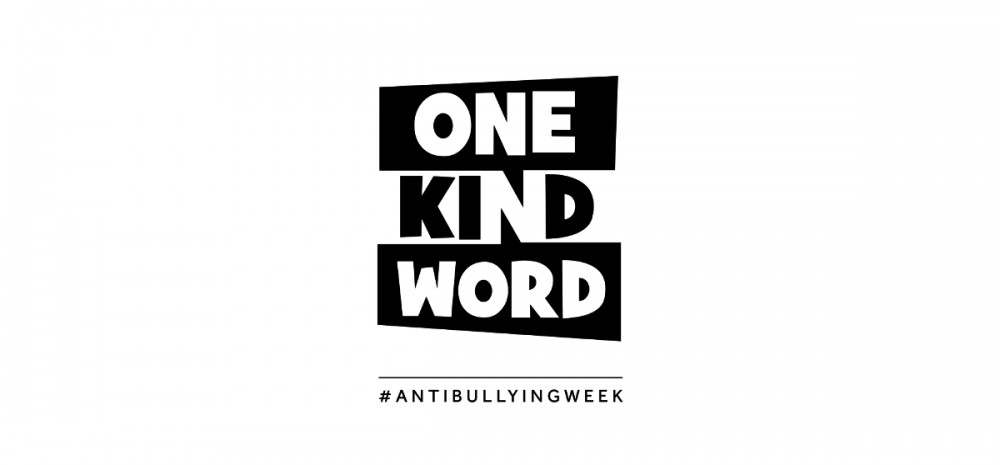
80% of UK schools join together for Anti-Bullying Week
This week, an estimated 80% of schools in the UK are taking part in Anti-Bullying Week, which, with this year’s theme of ‘One Kind Word’, is set to reach over 7.5 million children and young people, according to the Anti-Bullying Alliance, organiser of the event.
A coalition of organisations and individuals united against bullying, the Anti-Bullying Alliance explains that the purpose of the initiative is to raise awareness of bullying of children and young people, and highlight ways of preventing and responding to it. Launched in 2002, it has grown to become a significant event in the school calendar.
Defining bullying
You might think that it’s easy to define bullying, but given that it can nowadays shape shift into insidious online form, it’s useful to have a reminder. According to the Anti-Bullying Alliance: ‘Bullying is the repetitive, intentional hurting of one person or group by another person or group, where the relationship involves an imbalance of power. It can happen face to face or online.’
Prevalence
Bullying is a major issue for victims and schools. Findings from the Department for Education’s research on pupils in year 10 found that 40% of young people had been bullied over a 12-month period, and 1 in 4 young people with SEN (special educational needs) had experienced violence (actual or threatened). Given the extent of the problem, the Anti-Bullying Alliance’s reach into schools this week is to be celebrated.
Impact on wellbeing
The impact of bullying on mental and physical wellbeing should not be understated. Since the 1990s, research has been busting the myth that bullying should simply be dismissed as an inevitable part of growing up. Drawing on a range of evidence, the Anti-Bullying Alliance explains that bullying can be a barrier to learning, cause victims to miss school, be excluded, have impaired wellbeing, self-harm, experience depression, and can place a huge strain on families.
Repercussions into adulthood
Bullying has long-term implications too. According to King's College London research from 2015, the negative impact of childhood bullying on social, physical and mental wellbeing is still evident nearly 40 years later.
Individuals who were frequently bullied in childhood were more likely to experience mental health issues, including suicidal thoughts. Individuals who were bullied in childhood had lower levels of educational attainment, with men being more likely to earn less and be unemployed. They were less likely to be in a relationship or have a good social support network, and reported a lower quality of life.
Research from University of Warwick and Duke Medical Centre, provides further validation of bullying’s destructive effects, suggesting that its long-term impact may even be worse than that of child abuse.
Taking a whole-school stance
The Anti-Bullying Alliance advises that a whole-school approach to bullying, where the whole school community stands united in confronting the issue, is the most effective approach to addressing the problem in school. This will involve education in what bullying is and its massive potential for devastation. In fostering understanding and empathy, it is hoped that schools can move one step closer towards preventing bullying in the first instance and responding effectively when it does arise.
Resources for schools
We offer a range of courses and webinars to help schools fulfil safeguarding duties and support mental health issues, which are often the result of bullying. Our CPD covers, for example, understanding sexual harassment and violence; peer-on-peer sexual abuse; anxiety and depression in children, supporting pupils with autism and SEND; managing disclosures of mental health issues; a whole-school approach to mental health and wellbeing; and a free webinar on the role of the Mental Health Lead in addressing suicidal ideation and self-harm.
DfE grant-funded senior mental health lead training
Assured for DfE grant-funded senior mental health lead training, our Certificate in the Role of the Senior Mental Health Lead provides senior mental health leads with a clear understanding of their role and supports them to develop a vision and strategic plan which effects change, helping to enhance pupil outcomes and supporting greater emotional and physical wellbeing for all stakeholders.
Delivered by Anna Bateman, mental health and wellbeing expert who has worked in an advisory role for the DfE, and produced in collaboration with, and supported by, a number of subject matter experts, the course has been split into bite-sized modules and will be delivered through a blend of high-quality remote video CPD and self-directed learning.